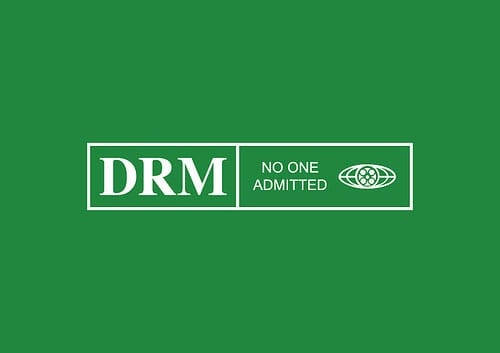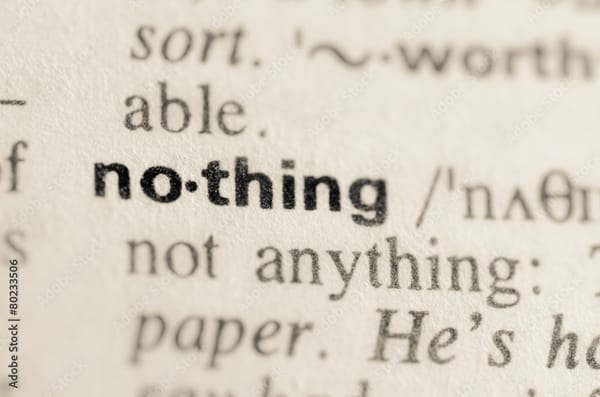Does DRM fuel piracy?

[vc_row][vc_column][vc_column_text]Picture this: I settle down one evening; set the lights low, open the LoveFilm envelope and drop the DVD into the player. Then I sit back with a notepad and pen, and take careful note of the things I am forbidden to do with this particular title. Then, because this is a Paramount title, I have to select a language … and wouldn’t you know it, “English” is on the very last page. At least my remote control is getting a work out…
OK, pen and paper at the ready again. My careful language selection has confirmed my country of origin, and therefore the laws unto which I am held … so some more legal jargon appears, apparently listing further things I must not do with this title. I’m beginning to feel sorry for those guys on the oil rigs – they always seems to get excluded at this point. There’s so much text on the screen, but they only ever seem to give you enough time to read the first sentence before the next slide appears. Of course, I could press pause – but oh no – they’re overridden every single button on my DVD remote at this point, so trying to press anything simply presents me with a friendly “FORBIDDEN!” message. Nice. I’m feeling all warm and cosy now. Does my movie start now?
Ah, oh wait. Another slide of text appears – I reach for my notepad not wanting to miss any fine details that may land me in jail. This one appears to be a disclaimer telling me that every word that any of the cast of crew utter is complete nonsense — a work of fictional — and not in any way endorsed by the mighty Paramount. Gotcha. I’m about to be lied to. I’m ready …
Now the Paramount studio ident appears. Normally I’d sing along, but Paramount’s is an eerily silent experience. I reach for the remote and press NEXT, and my DVD player shouts “FORBIDDEN!“. I bow my head in shame, and review my notes. There must have been something in there I missed about premature remote control usage.
I hear sound; my peripheral vision detects bright light. Hurray! My movie has started. I look up. Ah. “Coming soon to Theatres”. 5 seconds into the trailer, I realise I’ve seen this movie already. NEXT! — “FORBIDDEN!” — MENU — “FORBIDDEN!!!!“. Fair enough. Even the DVD player is getting upset at this point. I guess it’s only doing what it’s been told. I sigh, and sit back. I look at my watch – it’s been 4 minutes now. The trailer ends, and another one starts. I’ve not seen this one, but it’s got Will Ferrell in it. I don’t want to see this one, but I’ve grown wise now. I don’t reach for the remote. Instead I return to my notes. I check that only myself and private, non-paying, invited guests are present, and that the TV volume is not so loud as to constitute ‘illegally broadcasting’. I think I’m safe on these points. Finally, the trailer finishes. My movie awaits!
“Coming soon to DVD …”
Oh, for *&^$’s sake! There are literally thousands of movies made each year. Why do they think I’m going to be persuaded to buy the seemingly random selection of titles they’re forcing me to watch right now? NEXT! — “FORBIDDEN!!!!!!!“. Ah, crap. In my momentary burst of frustration, I forget myself. I careful return the remote to the coffee table, and listen for approaching footsteps; cars; helicopters … but I appear to be safe. For now. I look at my watch. 10 minutes have passed now.
Finally the trailers finish, and I’m presented with the foreboding Paramount studio ident again, presumably in case I’d forgotten which Movie Deity I had to give thanks to this evening. Now what’s going on? It looks like a menu … but it’s not fully resolved yet. There’s a fancy animation going on, with cheap 90’s montages drifting past in the background. I wait a moment, and decide that this is going to go on for a little while. I use this opportunity to get an extra cushion from the other couch. Ah, that’s better, I think to myself as I settle back into my “primary film consuming position”. I look up, and a wave of euphoria hits me. THE MENU IS HERE! HURRAY! Now, what movie am I watching again?
[us_separator icon=”fas|lock” show_line=”1″ line_width=”default”]
OK, so that little story got a little carried away, but we all know that’s a typical experience, with Paramount and Disney being some of the worst culprits in this forced DVD experience. The thing is, you have to begin to wonder why they bother. What is their thinking behind some of these carefully constructed DVDs? Being a video professional, I’ve authored plenty of DVDs, many with complex menu structures and programming. You really need to go out of your way when you’re creating a DVD to prevent the user from being able to do anything. Prevent them from skipping past studio idents … why?! Prevent them from skipping past or pausing on grave copyright warnings … but then only display them for a few seconds. WHY?! I’ve even watched DVDs that get to the end of the film, and then start reiterating the copyright warnings in every conceivable language – preventing me from getting back to the main menu and accessing all those ‘special features’ where they promised the cast and crew were going to lie to me about everything!
The fact is watching many DVD or BluRay titles is a needlessly painful experience, and as a consumer who has just forked out £14.99 for a new film, I feel the movie industry really is preaching to the converted with it’s threats and warnings. The reality is that anyone who wants to illegally rip and copy a DVD will never see those messages. They’ll never get caught up in all those trailers or studio idents. Doesn’t that sound like a wonderful proposition – to be able to sit down and just watch the movie? Well, it certainly an option – either illegally downloading movies, or sticking with the legal alternatives such as iTunes.
In a way, the ease by which we – just everyday folk like you an I – can copy a DVD is incredible, to think that when it was first introduced the region protection and CSS encryption was thought uncrackable. The fact is this is where we are. The DVD encryption system was cracked quite some time ago (by a 14 year old, no less!). The industry fought back with RPC protection, and some got so desperate they even started riddling their discs with errors in the hope that it would befuddle and confuzle those pesky pirates. Both failed, and ended up causing more problems for paying consumers than it did for the ‘pirates’.
The upshot of this loss of control has seen studios turning to actual content – filling discs to the brim with extra features; creating upwards of a hundred title tracks in the hope of upsetting the ripping software; splitting the film across many tracks, and jumbling up the parts … the list goes on, and not a single one of them have stopped the ripping.
I can almost hear the movie heads in their boardrooms; brandy in one hand – cigar in the other saying, “There’s nothing for it. We’ll have to add more text to the warning slides … and use a bigger font … and force them to watch the trailers … ha! That’ll stump them!” The sad reality is all of this only ever effects the vast majority of the honest consumers.
The DVD and BluRay encryption, for all intents and purposes, is a form of DRM – and DRM is becoming a dirty word for consumers. Newer content delivery systems, such as VoD services and video download services are generally all DRM coated, and even the delivery infrastructure is becoming infested with DRM in the form of HDCP, a copy-protection system built into most HDMI devices.
All this aims to achieve one thing: control. The movie studio or broadcaster reserves the right to choose where and how you can watch their content, and for how long. Many studios even take the view that you don’t ‘own’ the content, but you are in fact ‘renting’ it. This is a cycle that started a little earlier with the music industry, and while not completely resolved, there was a consumer uprising which has led to many services (iTunes included) to remove DRM from their content.
The fact is, we’re the consumers. We consume content, and without us none of these industries would survive. Yet it seems little consideration is given to this. I want to choose where I want to watch a movie – and above all I want it to be simple. If something is complicated, then people simply wont do it. A clear example of this is a copy of Star Trek X I have on a collector’s USB stick. The packaging talks about the ease of use, as the movie is available in friendly ‘file’ format. The reality is that it’s a protected WMV file that will only play on a Windows Vista or 7 PC, and in order to obtain the key to unlock it I need to register with Paramount, enter a 25-character code from a scratch card; hand over my personal details; confirm my email address, and only then will they give me a key … so that I can play it on one PC, and only one. WHY IS THAT BETTER!?
The movie industry would rather take the view that everyone in the world is a pirate; an illegal downloader or ripper of their precious content. In doing this they miss the point … why is piracy so prevalent? Is it because they need a better DRM system, because the latest one has been cracked? Surely that’s not sustainable.
I think the reality is that the more they tighten their grip, the more these star-systems will slip …. ah, erm … what I meant to say is that the more they shove DRM down our throats, and the hardware and software vendors battle with competing, incompatible formats – the more tempting the ripping of DVDs, or even illegal downloading becomes. In a way, consumers are saying, “Hey – look at this. THIS is how I want to consume your content.”
The problem is that the industry responds by promptly suing the person who made those remarks.
HDCP is the latest craze that’s beginning to worry me. One too many times recently I’ve had two devices that simply refuse to talk to each other. You’d think a Panasonic HD LCD screen would have no problems connecting to a Panasonic HD BluRay player, but you’d be wrong. What’s even more confusing is that the HDCP protection system isn’t always active – particularly with games consoles and cable receivers. You could be happily watching TV when suddenly your LCD screen announces that it’s fallen out with the Sky+ box, and they’re not speaking to each other any more. It’s yet another layer of confusion and frustration aimed at ‘pirates’, but affecting only consumers.
The HDCP system also carries a worrying feature that reeks of megalomania: A kill switch. That’s right – if Hollywood decided that the particular LCD screen or BluRay player you were using wasn’t playing to their rules, they could activate a kill code which would, in time, completely deactivate your device. It sounds like something out of a James Bond movie, but it’s actually true. The fact that the studios would probably never use it is not the point – the very fact it exists is proof that this is really all about control.
Oh, and what’s that I read in the news this week: The HDCP master key has been cracked. Oh heck. There goes another one.
As consumers we really get a raw deal when it comes to content, and it doesn’t surprise me at all when people turn to unorthodox methods to obtain or view their content – not our of anger or resentment, or because they have a burning desire to be a pirate, yarrrr! No, because they simply want to watch a frickin’ movie – and ONLY the movie – when they want, and on a device of their choosing.
DRM may not be the cause of piracy, but as long as it’s forced down our throats, it’ll fan the flames nicely.
Amen.
[fblike layout=”box_count” show_faces=”true” action=”like” colorscheme=”light”][/vc_column_text][/vc_column][/vc_row]



